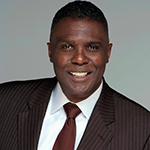George Curry Media Guest Columnist
Among the deadliest health issues facing African Americans today: Cancer; homicides; HIV/AIDS; etc. But few, if any, touch the lives of more African-Americans than high blood pressure.
Usually, hypertension is defined as blood pressure above 140/90, and is considered severe if the pressure is above 180/120. Blood pressure numbers between 120-139 systolic (upper number) or 80-89 diastolic (lower number) are considered prehypertension.
More than 40 percent of African Americans have high blood pressure, a rate that is one of the highest in the world. Racial disparities between African Americans and Whites are striking: in addition to having a higher prevalence of high blood pressure, African Americans are more likely to develop hypertension at a younger age and are at higher risk of strokes, heart failure, end-stage renal disease and deaths from heart disease.
Traditionally, the lack of health insurance, and regular medical care has been thought to play a major role in the inequities in the burden of this “silent killer.” Research has shown that health insurance coverage can influence the successful control of hypertension. Quality care, seeing the same doctor, and coverage for prescription drugs all help. Unfortunately, there are millions of African Americans who now have access to care, in large part, as a result of the Affordable Care Act.
The higher prevalence of hypertension in Blacks living in the United States instead of Africa demonstrates that environmental and behavioral characteristics are the more likely reasons for the higher prevalence in blacks living in the United States. African Americans stroke survivors fare worse than other groups, too: They are more likely to become disabled by stroke and unable to participate in everyday activities like walking, lifting or grasping objects, and socializing with others.
Stroke is the third leading cause of death in the United States, and African Americans are about 50 percent more likely to experience them than Caucasians. The odds are especially high for Black men at 70 percent. Experts believe that the increased stroke risks result from a combination of genetic and environmental factors, such as high blood pressure (hypertension), diabetes, coronary heart disease, and a sedentary lifestyle – all major stroke risk factors.
Even though African Americans are the population at highest risk, research shows that many don’t know very much about strokes. Calling 911 right away was the most appropriate way to respond to stroke symptoms. And time does matter. If given within three hours of the start of symptoms, a clot-busting drug called tissue plasminogen activator (tPA) may reduce long-term disability for the most common type of stroke, according to the American Stroke Association.
It was once thought that certain genetic and biological differences caused the risk to be greater in African-Americans. Experts are now looking into how socioeconomic disadvantages and lifestyle factors may add to these risks. African-Americans are more likely to: Be sensitive to the effects of salt on blood pressure; have blood vessels that are more sensitive; and be overweight or obese; have diabetes than non-Hispanic Whites.
We also now know that there are other things that may make up for the difference in high blood pressure risk: Less access to health care and health care information; lower levels of education and income; lack of resources for a healthy lifestyle; diets high in salt, fat, and sugar, and low in vegetables and fiber; stressful lifestyle from things such as unemployment and living in neighborhoods with noise, violence, and poverty; and of course, smoking.
Although Blacks have widely been perceived as having the highest rates of high blood pressure in the world, they do not. Adults in Germany, Finland, and Spain all have higher age-adjusted rates.
There is much that is not known about why African-Americans are so prone to be affected by strokes and high blood pressure. What we do know is that if you have high blood pressure or prehypertension, you can lower your blood pressure by making changes in your lifestyle.
And let me close by shattering a big myth: Having high blood pressure does not mean that you’re tense or nervous. You can be calm and relaxed and still have high blood pressure. You usually can’t tell if you have it. The only way to know if your blood pressure is high is to have it checked regularly.
Remember, I’m not a doctor. I just sound like one.
DISCLAIMER:
The information included in this column is for educational purposes only. It is not intended nor implied to be a substitute for professional medical advice. The reader should always consult his or her healthcare provider to determine the appropriateness of the information for their own situation or if they have any questions regarding a medical condition or treatment plan.
















